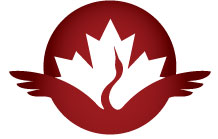[CanKor Brain Trust member Roberta Cohen is a Non-Resident Senior Fellow in Foreign Policy at the Brookings Institution. She is a specialist in human rights, humanitarian, and refugee issues and a leading expert on the subject of internally displaced persons. CanKor reproduces here a statement made by Ms Cohen at the Asan Institute for Policy Studies‘ Washington Forum 2013 and subsequently published by them as Issue Brief #60. The views expressed herein do not necessarily reflect the views of the Asan Institute for Policy Studies. –CanKor]
It is time for the international community to address itself directly to the most serious of North Korea’s human rights violations – the prison labor camps. Situated in the mountains of North Korea, the camps are estimated to hold some 100,000 to 200,000 prisoners, including whole families, many of whom are not expected to survive.
The issue has come to the fore through the combined efforts of human rights NGOs and former North Korean prisoners who have escaped the country. For several decades, NGOs, academics and journalists from the United States, Western Europe and the Republic of Korea have conducted painstaking research to unearth verifiable information about the camps and North Korea’s overall human rights situation. They have come up with persuasive evidence despite the regime’s efforts to conceal its conduct through denial of access. Read the rest of this entry »












